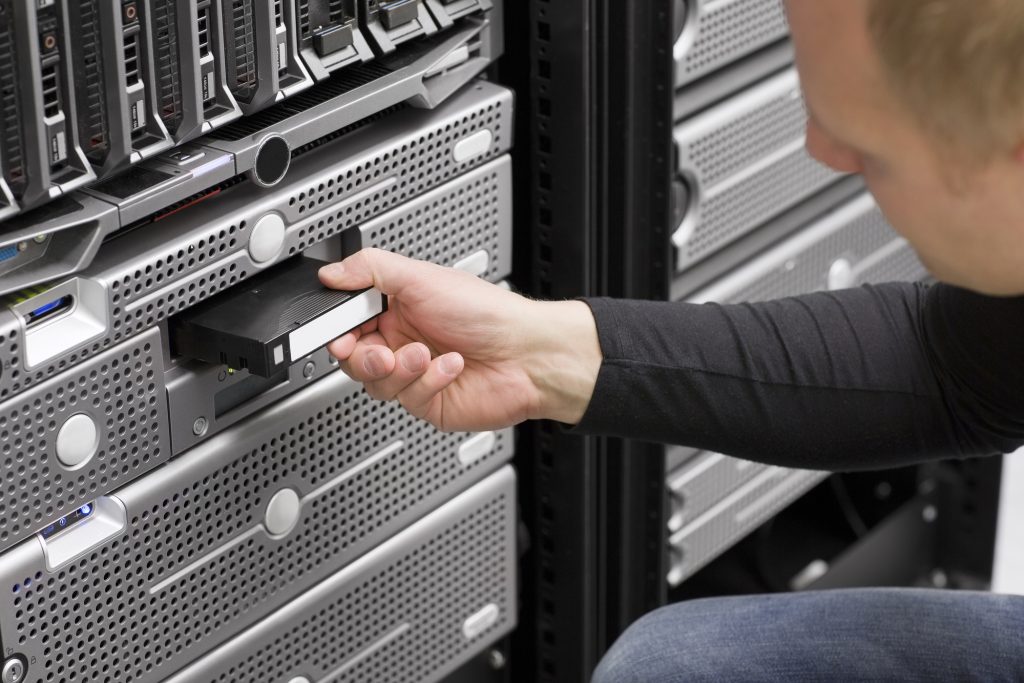- June 15, 2023
- Catagory Data Protection
Why You should Have Magnetic Tape in Your Data Backup Mix
If you think magnetic tape storage for backup and archives is old school, think again – even the big hyperscale data centers see the benefit due to its low cost.
Hyperscalers are some of the biggest users of magnetic tape because it enables them to store massive amounts of “cold” data cost effectively – a on a cost-per-bit basis, tape storage is cheaper than hard drives, and it makes no sense to store seldomly-accessed information on ultra-fast flash-based SSDs.

Magnetic tape can also play a role in a comprehensive security strategy. By backing up to tape, you can create what is known as an “air gap.” You can back up sensitive data to magnetic tape to protect it from a malware attack since data that is instantaneously replicated to the cloud can be corrupted just as quickly at the backup destination. By backing up to tape periodically and otherwise keeping it off the network, you have a clean version that can be restored in the event of a malware or ransomware attack.
In the meantime, the capacity of magnetic tape is growing fast while the amount of data grows exponentially. Not only is tape the lowest cost for bit compared with other storage media options, but the overall capacity per tape now has a native capacity of 18 terabytes with 500 terabytes on the horizon.
While it may take longer to restore from tape, the media itself has a long shelf life as well – a magnetic tape cartridge stored in the right environmental conditions can last for several decades. If you’re required by government legislation or other regulatory bodies to retain data for years after it’s collected, tape is a great option for archives and backup. Small and medium-sized companies must often comply with the same legal and regulatory requirements as large enterprises, such as Canada’s Personal Information Protection and Electronic Documents Act (PIPEDA) and Europe’s General Data Protection Regulation (GDPR).
The financial services and health sectors have data retention requirements, with the latter being required to retain patient records including tests like X-rays for many years.
Magnetic tape is also sustainable because it consumes the least amount of energy compared with other data storage options. And if you’ve embarked on an Environmental, Social and Governance (ESG) strategy, tape is more compelling because its overall footprint starting with the raw materials to ultimate disposal is quite low.
All these characteristics make magnetic tape a popular option for many industries – capacity per cartridge, low cost per bit, and low power consumption have made it a preferred option for the oil and gas sector, particularly for seismic data, while the entertainment industry uses tapes like they are big USB drives to move media from one stage of production to another.
And while artificial intelligence (AI) and machine learning processes do require fast memory and storage, the vast amounts of information it needs to learn from have to be stored somewhere. If you collect a lot of data via internet of things (IoT) devices, you may want archive it for future use. The capacity of tape is ideal for large data sets.
While there is an upfront cost to investing in magnetic tape for backup and storage, the total cost of ownership is appealing if you’re a small or medium-sized company that’s mindful of its energy bills – you’ll recoup your initial outlay thanks to a low cost of ownership (TCO).
Better still, like most data storage and backup options like the cloud, you don’t necessarily need to set up your own tape storage on-site. There are many service providers who can help exploit benefits of magnetic tape and manage it for you.




 Latest Blogs
Latest Blogs FAQ
FAQ